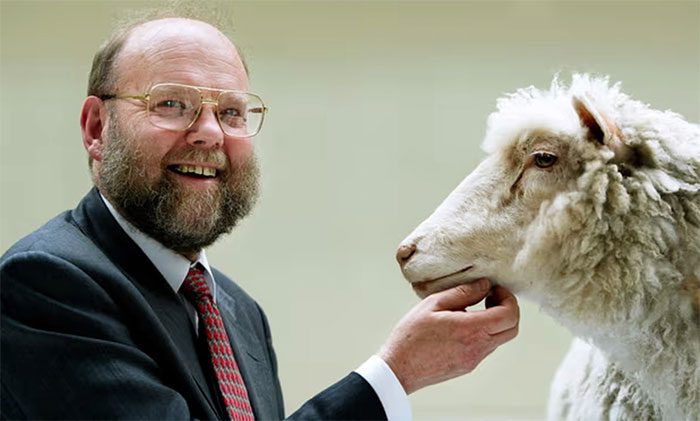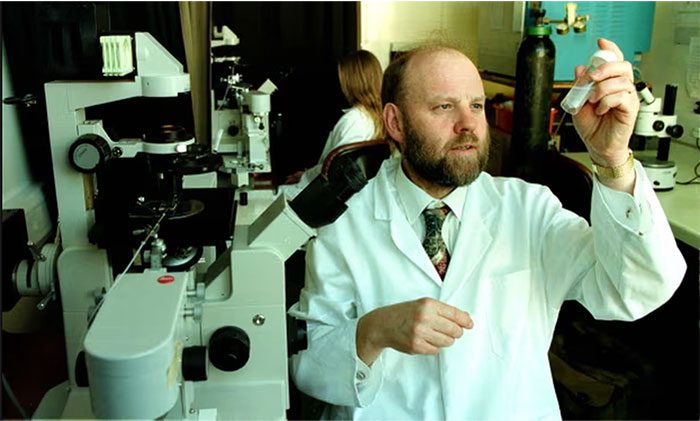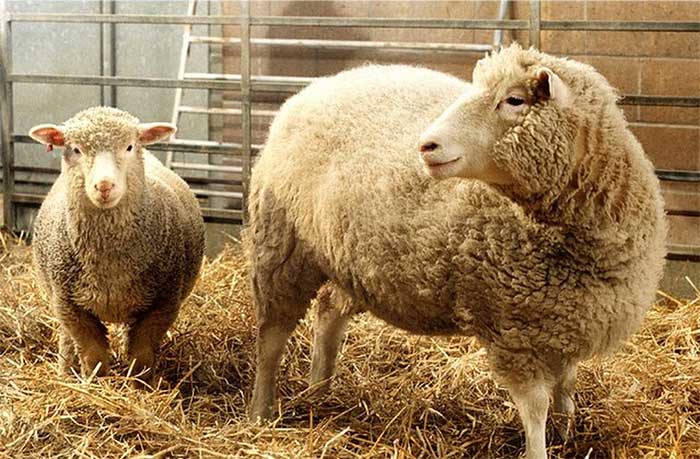Professor Sir Ian Wilmut, the British scientist who led the team that cloned Dolly the sheep, has passed away at the age of 79.
The death of the researcher, hailed as a “giant in the scientific community,” comes five years after he revealed he had been diagnosed with Parkinson’s disease. Ironically, this is the same condition from which Dolly the cloned sheep—the crowning achievement of his career—was expected to yield a treatment.

Professor Sir Ian Wilmut, the scientist who created Dolly the sheep, passed away on September 10, 2023, at the age of 79. (Photo: Guardian).
Nonetheless, the breakthrough from Dolly continues to prove its worth by driving many advances in the field of regenerative medicine that we see today.
“He was a giant in the world of science,” said Professor Sir Peter Mathieson, the principal of the University of Edinburgh. “Wilmut’s experiment changed the entire scientific mindset at that time.”
Professor Bruce Whitelaw, director of the Roslin Institute, stated, “With the sad news today of Ian Wilmut’s passing, the scientific community has lost a familiar name.”
“Dolly the sheep, his legacy, has spurred many exciting applications emerging from research in animal and human biology,” Professor Whitelaw shared in a post on Twitter.

Ian Wilmut at the Roslin Institute, Edinburgh, in 1999. (Photo: Guardian).
Dolly was the first sheep created by the research team led by Professor Sir Ian Wilmut from cultured mammary cells on July 5, 1996. Before this breakthrough, sheep could only be cloned from embryonic cells.
This method combined the mammary gland of a 6-year-old Finn Dorset sheep with an egg cell taken from a Scottish Blackface sheep.
This breakthrough marked the pinnacle of Professor Wilmut’s career, who dedicated his life to science in the fields of animal research and cryopreservation since the late 1960s.
However, Professor Wilmut never concealed the fact that the creation of Dolly was largely due to luck, as she was the only sheep to survive after 277 cloning attempts.
In 1973, he was also part of the research team at the University of Cambridge that produced Frostie, the first calf born from a frozen embryo.

Dolly the sheep – a breakthrough that changed the entire scientific mindset. (Photo: Getty).
Speaking of Dolly, the sheep named after country singer Dolly Parton, she gave birth to six lambs and spent most of her life among a flock of cloned sheep at the Roslin Institute in Scotland.
Dolly passed away in 2003 at the age of 6 due to complications from arthritis and a viral lung disease.
To this day, Professor Ian Wilmut’s most significant legacy, along with Dolly, is the tremendous boost it provided for stem cell research.
The success in creating Dolly demonstrated that genes in the nucleus of mature cells could revert to a pluripotent embryonic state, meaning that these cells could divide to produce all the different cell types in animals.
In 2006, a similar technique used to create Dolly was applied by scientists to produce “induced pluripotent stem cells” (iPS cells) from adult human skin cells.


















































